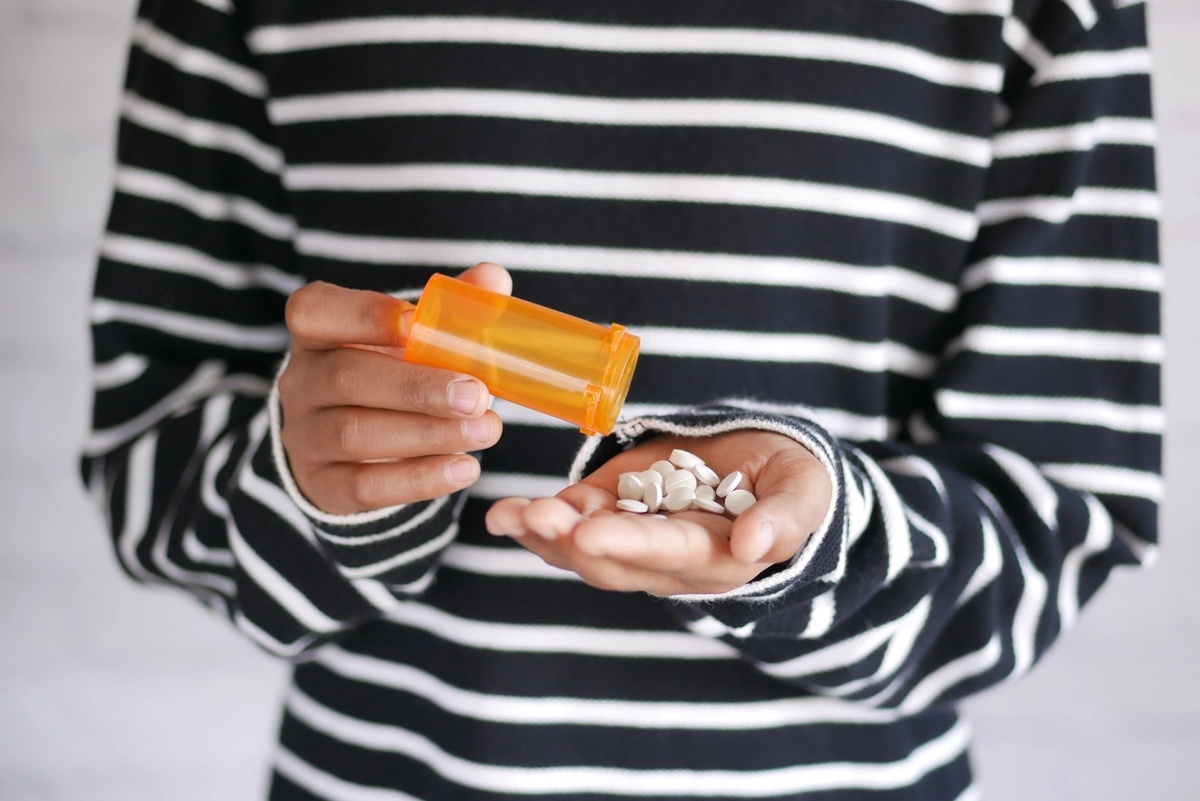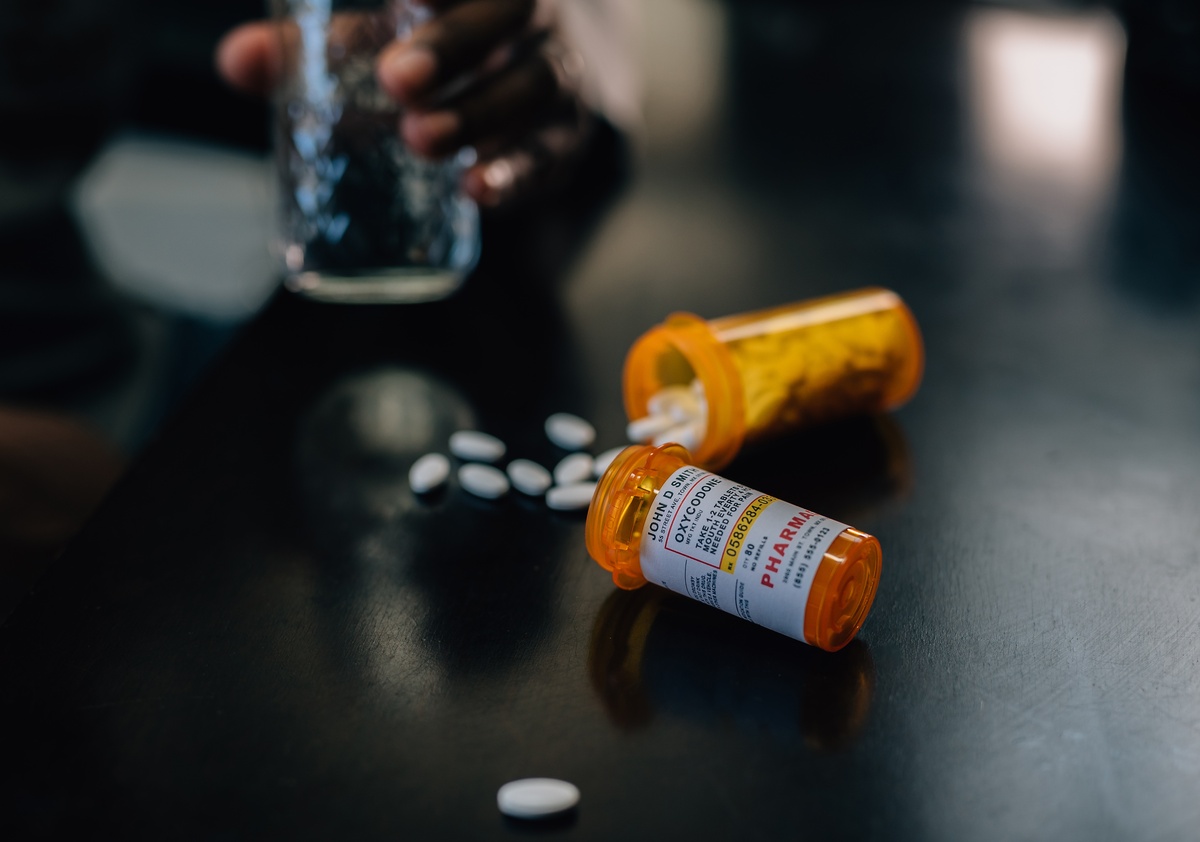Synthetic Drug Addiction: Understanding Symptoms, Treatment, & More


Synthetic drug addiction, be it cathithones, opioids, or cannabinoids, can significantly disrupt your health and daily life. But remember, you’re not alone. Recovery is achievable with the right treatment, which typically includes detox, inpatient or outpatient care, and aftercare. Learn about the symptoms and causes here and call The Forge Recovery Center today if you or a loved one require professional treatment and support.
What Are Synthetic Drugs?
Synthetic drugs, also known as designer drugs, are chemically created substances that mimic the effects of traditional drugs like marijuana (i.e. Spice), cocaine, or ecstasy. These compounds are often made in illegal laboratories using various chemicals. When consumed, synthetic drugs can lead to unpredictable and dangerous effects on the body and mind. The composition of these substances is frequently altered to evade legal restrictions, making them particularly risky for consumption.

Types of Synthetic Drugs
Cathinones
Cathinones are a class of synthetic stimulants that are chemically related to cathinone, a natural stimulant found in the khat plant. Common drug examples of cathinones include mephedrone, methylone, and MDPV. These drugs are known for their stimulant effects, including increased energy, alertness, and euphoria. However, they can also have negative side effects such as increased heart rate, paranoia, and agitation. The use of cathinones can also lead to addiction and potential long-term health consequences. It is important to be aware of the risks associated with these substances and to use them with caution.
Synthetic Opioids
Synthetic opioids are man-made drugs that are designed to mimic the effects of natural opioids like morphine and codeine. These drugs are often prescribed for pain management but can also be abused for their euphoric effects. Common examples of synthetic opioids include fentanyl, tramadol, and methadone.
The effects of synthetic opioids can vary depending on the specific drug, but generally, they can cause pain relief, drowsiness, confusion, constipation, and respiratory depression. When taken in high doses or combined with other substances like alcohol, synthetic opioids can be extremely dangerous and even deadly. It is important to use these drugs only as prescribed and under the guidance of a healthcare professional to avoid potential risks and complications.
Synthetic Cannabinoids
Synthetic cannabinoids, also known as synthetic marijuana or K2/Spice, are man-made chemicals that are designed to mimic the effects of THC, the active ingredient in marijuana. These synthetic drugs are typically sprayed onto dried plant material and smoked, leading to similar effects as traditional marijuana but often with more intense and unpredictable outcomes. Common examples of synthetic cannabinoids include JWH-018, AM-2201, and CP-47,497.
The effects of synthetic cannabinoids can vary widely and may include altered perception, mood changes, increased heart rate, paranoia, and hallucinations. These drugs can also lead to serious health risks such as seizures, kidney damage, and even death. Due to the unpredictable nature of synthetic cannabinoids and their potential for harm, they are considered highly dangerous and addictive substances.
Are You Struggling with Mental Health or Addiction?
We Can Help. Call Us Now!
CALL: 877-839-1772
What Is Synthetic Drug Addiction?
Synthetic drug addiction refers to the compulsive use of man-made substances that mimic the effects of natural drugs like opioids, stimulants, or hallucinogens. These synthetic drugs are often designed to be more potent, and therefore unpredictable, than their natural counterparts, leading to a higher risk of addiction and overdose.
Common examples of synthetic drugs include synthetic cannabinoids (such as Spice or K2), synthetic cathinones (like bath salts), and synthetic opioids (such as fentanyl). Addiction to these substances can have severe consequences on physical and mental health, as well as social and occupational functioning. Treatment for synthetic drug addiction typically involves a combination of therapy, medication, and support services to help individuals overcome their dependence on these dangerous substances.
Symptoms of Synthetic Drug Addiction
Symptoms of synthetic drug addiction include strong cravings associated with dependence, secretiveness and isolation, and sensitivity to triggers. Withdrawal symptoms such as nausea and anxiety are also signs to seek professional help. Here’s a deeper look at the symptoms of synthetic drug addiction:
Cravings
With prolonged use, your body can become dependent on synthetic drugs, leading to intense cravings. These cravings can be overwhelming and persistent, driving you to seek out and use them despite knowing the negative consequences.
Secretiveness & Isolation
Addiction to synthetic drugs often leads to secretiveness and isolation. You may start hiding your drug use from loved ones, withdrawing from social activities, and isolating yourself to avoid judgment or detection.
Triggers
When you’re addicted to synthetic drugs, certain triggers can prompt your drug use. These triggers may include stress, peer pressure, or exposure to environments where the drugs are easily accessible.
Examples:
Stress
Peer pressure
Easy access to drugs
Withdrawal Symptoms
When you try to stop using synthetic drugs, you may experience withdrawal symptoms. These symptoms can range from mild discomfort to severe physical and psychological effects such as nausea, anxiety, insomnia, and even hallucinations.
Symptoms Include:
Nausea
Anxiety
Insomnia
Hallucinations
Are You Struggling with Mental Health or Addiction?
We Can Help. Call Us Now!
CALL: 877-839-1772
Treatment for Synthetic Drug Addiction
Treatment for synthetic drug addiction, along with most other substance use disorders, involves detoxification, treatment, and aftercare support. Here’s how the treatment process works:
Detox
When you begin detoxing from synthetic drugs, your body eliminates the harmful substances. Detox typically involves medical supervision to manage withdrawal symptoms like anxiety and nausea. Your safety is a priority during this crucial phase.
In some cases, medications may be administered to ease severe withdrawal symptoms. Detox usually lasts for a few days to a week, depending on the specific drug and individual factors. The goal is to cleanse your body from synthetic substances safely.
Inpatient Treatment
During inpatient treatment, you stay in a specialized facility where you receive round-the-clock care and support. Here, you participate in various therapies tailored to address your addiction's root causes. The structured environment minimizes temptations and distractions.
In inpatient programs, you engage in individual counseling sessions and group therapy with peers facing similar challenges. The intensive nature of this treatment approach ensures focused care to help you overcome synthetic drug addiction effectively.
Outpatient Treatment
Opting for outpatient treatment provides flexibility while receiving the necessary support for recovery. You attend scheduled therapy sessions at a clinic or treatment center without residing there. This allows you to maintain daily responsibilities while addressing addiction.
In outpatient programs, you benefit from counseling, behavioral therapies, and medication management if required. Regular check-ins with healthcare professionals ensure progress tracking and adjustments to your treatment plan as needed.
Aftercare
After completing a formal treatment program, aftercare plays a vital role in maintaining long-term sobriety. You continue receiving support through ongoing therapy sessions, support groups, and community resources. Building a strong support network is key to preventing relapse.
Engaging in regular follow-ups with healthcare providers helps monitor your progress post-treatment. Establishing healthy habits, coping mechanisms, and stress management techniques are essential components of successful aftercare strategies.

Causes of Synthetic Drug Addiction
Synthetic drug addiction can stem from a number of causes, from stressful life events and a family history of addiction to co-occurring mental health conditions. Let's explore these causes further:
Access to Drugs
The easy availability of synthetic drugs can significantly contribute to addiction. You may find these substances in stores, online platforms, or even from friends, making it challenging to resist.
Moreover, the allure of trying something new or seeking a quick escape from reality can drive you towards experimenting with synthetic drugs. The accessibility and novelty factor often make them appealing choices.
Life Stressors
Your environment and life stressors play a pivotal role in synthetic drug addiction. Coping with stressful situations such as work pressure, relationship issues, or financial troubles can lead you to seek solace in these substances.
The temporary relief and euphoria provided by synthetic drugs may seem like an attractive coping mechanism when facing overwhelming challenges. However, relying on them can quickly escalate into addiction.
Personal History
Reflecting on your personal history, past experiences and traumas can influence the development of synthetic drug addiction. Childhood trauma, unresolved emotional issues, or a history of substance abuse within your family can increase the likelihood of addiction.
Understanding how your past impacts your present behavior is crucial in addressing addiction effectively. Seeking professional help to explore these underlying factors is essential for long-term recovery.
Co-Occurring Conditions
In addition to external factors, co-occurring mental health conditions such as anxiety, depression, or PTSD can exacerbate synthetic drug addiction. These conditions often coexist with substance use disorders, creating a complex web of challenges.
Managing both the addiction and underlying mental health issues is vital for comprehensive treatment. Seeking integrated care that addresses both aspects simultaneously can improve your chances of recovery.
Are You Struggling with Mental Health or Addiction?
We Can Help. Call Us Now!
CALL: 877-839-1772
Synthetic Drug Addiction Prevalence
Synthetic drugs are a point of concern in the U.S., especially among young adults experimenting with synthetic cannabinoids. Results in one study indicated that 4.3% of students reported synthetic and other drug use in the past 30 days. The participants perceived substances like tobacco, alcohol, marijuana, and prescription drugs as “easy to obtain.”
The same study found that approximately 9% of high school teens reported ever using synthetic cannabinoids one or more times throughout their lives. But perhaps most notable is Secretary Blinken’s opening remarks in a virtual ministerial meeting, stating: “Synthetic drugs are the number one killer of Americans aged 18 to 49. And it’s almost worth pausing on that fact.” This is primarily highlighting fentanyl, a strong driver of opioid overdoses and fatalities.
All of this combined marks how synthetic and other drug use is a growing public health concern, with education about synthetic drug dangers being of the utmost importance.
Starting Treatment
If you’re ready to start treatment for synthetic drug addiction, congratulations — the first step is recognizing the need, and you’ve already taken that step. Treatment typically takes place at a 24/7 inpatient facility, or at an outpatient treatment center. Here are your next steps if you’re prepared to take the first step on your recovery journey:
Inpatient Facilities
When seeking treatment for synthetic drug addiction, consider inpatient facilities for intensive care and support. These facilities provide 24/7 medical supervision, therapy sessions, and structured routines. At inpatient facilities, you can benefit from a supportive environment where you are away from triggers and temptations. The structured programs help you focus on recovery without distractions.
Consider the pros of inpatient facilities such as constant supervision, immediate access to medical care, and intensive therapy sessions. However, keep in mind the cons like being away from family and friends for an extended period.
Outpatient Care
Outpatient care offers flexibility for those balancing treatment with work or school commitments. You attend therapy sessions and treatments during the day, returning home at night. The key advantage of outpatient care is maintaining your daily routine while receiving treatment. It allows you to apply the strategies learned in therapy directly to real-life situations. When considering outpatient care, weigh the benefits such as flexibility and independence against challenges like potential exposure to triggers outside the treatment setting.
Are You Struggling with Mental Health or Addiction?
We Can Help. Call Us Now!
CALL: 877-839-1772
Closing Thoughts
Now that you understand the dangers of synthetic drug addiction and the available treatment options, it's crucial to take action. If you or someone you know is struggling with synthetic drug addiction, don't hesitate to seek help. The road to recovery may be challenging, but with the right support and determination, it's possible to overcome this addiction and lead a healthier, drug-free life.
Reaching out for help is the first step towards a brighter future. Remember, you are not alone in this journey. By seeking assistance from professionals and loved ones, you can break free from the grips of synthetic drug addiction. Your well-being is worth fighting for. Take that brave step today towards a life of sobriety and fulfillment.
Treatment for Synthetic Drug Addiction in Orange County
Synthetic drug addiction is a hidden battle that can significantly impact your health and daily life. However, it’s crucial to remember that you’re not alone in this journey. Recovery isn’t just a possibility, but a reality with the right treatment and support.
The Forge Recovery Center is here to provide that support, with a team of treatment experts and a range of evidence-based therapies at our Southern California addiction center to guide your recovery journey. See our treatment modalities below, and contact us today if you or a loved one are in need of professional support.
Treatment Modalities We Offer
At The Forge Recovery Center, we offer a variety of scientifically-backed treatment methods to support your path to recovery, which include:
Case Management
Case management offers crucial assistance to patients by navigating them through the required time and resources for recovery, thereby enhancing their likelihood of defeating opioid addiction.
CBT
Cognitive-behavioral therapy (CBT) is an effective method that aids individuals in identifying and altering harmful thoughts and behaviors linked to drug abuse, including fentanyl misuse.
DBT
Dialectical behavior therapy (DBT) helps individuals acknowledge their emotions and aim for positive transformation, vital for those with high substance tolerance and battling addiction.
EMDR
Eye movement desensitization and reprocessing (EMDR) therapy focuses on the traumatic memories that could instigate addiction, employing eye movements to process these incidents and diminish their impact on one’s life.
Experiential
Participation in experiential activities enables those in recovery to face past traumas, often a major factor in opioid abuse, and discover new ways to appreciate life without reliance on substances.
Family Counseling
Family counseling is instrumental in bolstering an individual’s resilience against fentanyl addiction, with family members playing a substantial role in promoting healing and resilience.
Group Therapy
Group therapy creates an environment where individuals can exchange their experiences and offer mutual support, underscoring that no one is alone in their struggle against addiction.
Individual Therapy
Personalized individual therapy sessions tackle the unique challenges and behaviors of an individual, steering them toward a life devoid of drugs and alcohol.
MAT
Medication-assisted treatment (MAT) merges behavioral therapies with approved medications to tackle opioid use disorders, offering assistance when needed.
TMS
Transcranial magnetic stimulation (TMS) employs magnetic fields to stimulate brain cells, providing hope in curbing intense cravings and disrupting the cycle of addiction.
Motivational Interviewing
Motivational interviewing enables individuals to uncover their motivation for change, particularly beneficial for those grappling with cocaine or fentanyl addiction.
Trauma-Informed Care
Trauma-informed care considers how trauma symptoms may influence a person’s addiction and recovery, ensuring a compassionate and effective treatment approach.



